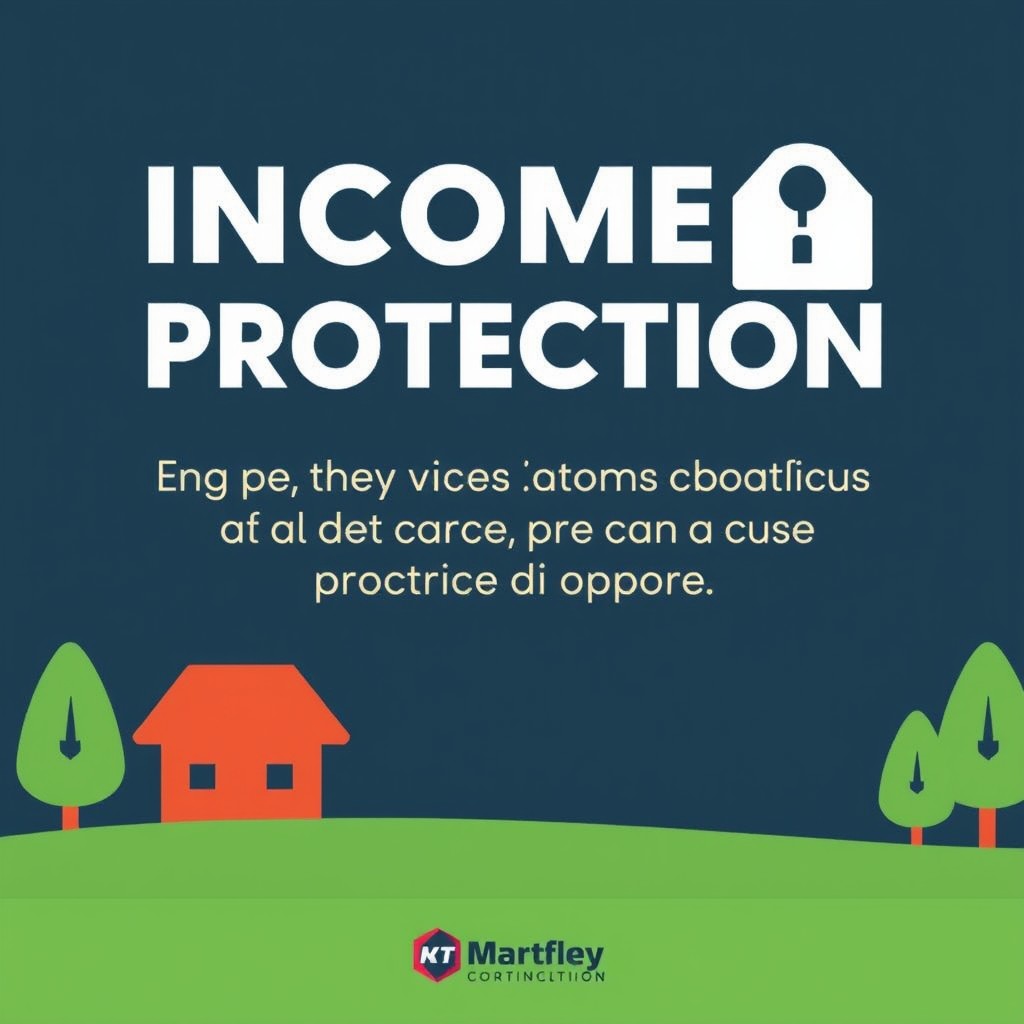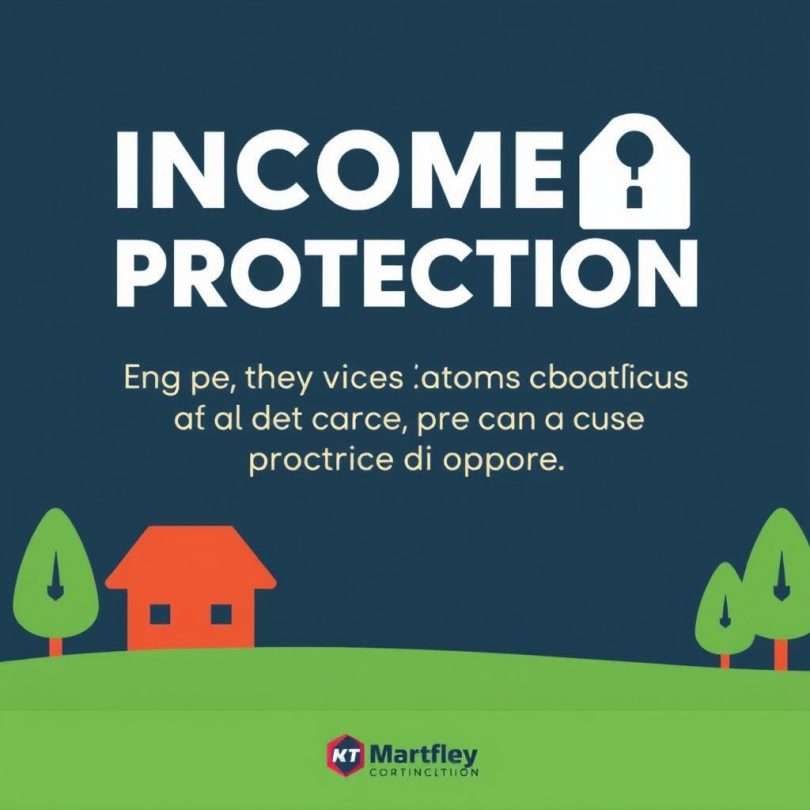
In today’s world, having a stable income is essential for maintaining financial security. However, life can be unpredictable, and unforeseen circumstances such as accidents, illnesses, or job loss can quickly disrupt your financial stability. This is where income protection comes into play. In this article, we will explore the concept of income protection, why you need an income protection quote, how to get the best deal, and how this crucial safety net can help protect you from the financial impacts of losing your primary source of income.
What is Income Protection?
Income protection is a type of insurance policy designed to replace a portion of your income if you are unable to work due to illness or injury. Unlike other types of insurance, income protection is focused specifically on your earnings, helping you maintain a level of financial stability when you cannot work.
Income protection policies typically pay out a percentage of your pre-tax income—usually between 50% and 70%—for a specified period of time or until you are able to return to work. The length of time you receive the payments depends on the terms of your policy, with some policies offering short-term coverage (such as one to two years) and others providing long-term coverage (which could last until retirement).
Why Do You Need Income Protection?
Income protection is an essential part of financial planning for anyone who relies on a regular paycheck to support themselves and their family. Here are several reasons why you should consider securing income protection:
- Covering Essential Living Costs: If you are unable to work due to illness or injury, you will still need to pay for housing, food, utilities, and other essential expenses. Without income protection, you could face severe financial strain, potentially leading to debt, stress, and a significant reduction in your quality of life.
- Job Security: Even if you have a stable job, there’s always the risk of something happening that prevents you from working. An unexpected injury, long-term illness, or mental health challenges could leave you unable to perform your duties. Income protection acts as a safety net that ensures you can still support yourself financially during these difficult times.
- Peace of Mind: Knowing that you have financial protection in place in case something goes wrong can provide peace of mind. This peace of mind allows you to focus on your recovery or search for new employment without the added burden of worrying about your finances.
- It’s More Affordable Than You Think: Many people believe that income protection is expensive, but in reality, the cost of an income protection policy is often lower than they expect. The amount you pay for coverage is based on factors like your age, occupation, income, and the type of policy you choose, so you can tailor the coverage to fit your budget.
How to Get an Income Protection Quote
When it comes to obtaining an income protection quote, there are several steps you need to take to ensure you get the best possible deal for your needs. Here are the key steps to follow:
- Assess Your Needs: Before you start looking for a quote, take some time to assess your needs. Think about how much income you would need to replace if you were unable to work. Most people aim for around 60-70% of their monthly income, but this will depend on your personal financial situation.
- Consider Your Occupation and Health: Income protection quotes can vary depending on your occupation and health status. If you work in a high-risk job, such as construction or emergency services, your premiums may be higher than someone in a low-risk job, like an office worker. Additionally, if you have a pre-existing medical condition, this could also affect the terms of your policy.
- Choose the Type of Income Protection Policy: There are several different types of income protection policies available, including:
- Short-Term Income Protection: Provides coverage for a set period of time (e.g., 12-24 months).
- Long-Term Income Protection: Provides coverage until you are able to return to work or until retirement age.
- Accident-Only Income Protection: Covers you in the event of an accident that prevents you from working.
- Compare Income Protection Quotes: Once you’ve assessed your needs and selected the type of policy you’re interested in, it’s time to shop around for quotes. You can use comparison websites, speak with insurance brokers, or directly approach insurers to get multiple quotes. Be sure to compare not just the premiums but also the level of coverage, exclusions, waiting periods, and any other terms that could affect your policy.
- Understand the Fine Print: Income protection policies can have various exclusions, such as pre-existing medical conditions, waiting periods, and caps on payout amounts. Before you sign anything, make sure you fully understand the terms and conditions. Ask questions if anything is unclear, and seek advice from a financial advisor if necessary.
Factors That Affect Your Income Protection Quote
Several factors can influence the cost and terms of your income protection quote. These factors include:
- Age: The older you are, the more expensive your income protection policy will be, as the likelihood of illness or injury increases with age.
- Occupation: As mentioned earlier, high-risk occupations can result in higher premiums. Insurers will assess the level of risk associated with your job and factor that into your quote.
- Health Status: If you have any pre-existing medical conditions, this may affect your eligibility for certain policies or the cost of coverage. Insurers may increase your premiums or exclude coverage for certain conditions.
- Policy Length: The longer you want your income protection to last, the higher your premiums are likely to be. Policies that provide lifetime coverage or continue until retirement tend to be more expensive than those that offer coverage for a fixed period.
- Excess/Waiting Period: Some policies have a waiting period, during which you will not receive any income protection payments. Choosing a longer waiting period can reduce your premiums, but it means you’ll need to wait longer before receiving benefits.
- Amount of Cover: The amount of income you wish to replace will directly impact your premiums. Policies that offer higher coverage levels will cost more, but you’ll have greater protection if you become unable to work.
How to Save on Your Income Protection Quote
While it’s important to get comprehensive coverage, there are ways to reduce the cost of your income protection quote:
- Increase the Excess/Waiting Period: By opting for a longer waiting period, you can reduce your premiums. Just make sure the waiting period is manageable for your finances in case of illness or injury.
- Shop Around: Different insurers offer different rates and coverage options, so it’s essential to compare quotes from multiple providers.
- Review Your Policy Regularly: Life circumstances change, and so do your insurance needs. Regularly review your policy to ensure it still meets your requirements and that you are getting the best value for money.
Conclusion: The Importance of Getting the Right Income Protection Quote
Having the right income protection coverage can make all the difference when life throws you an unexpected curveball. Whether it’s a serious illness, a disability, or an injury, an income protection quote ensures that you’re financially covered during your time of need. By assessing your needs, comparing quotes, and understanding the fine print, you can secure a policy that offers peace of mind without breaking the bank.
Hashtags:
#IncomeProtection #IncomeProtectionQuote #FinancialSecurity #Insurance #IncomeProtectionInsurance #IncomeInsurance #LifeInsurance #DisabilityInsurance #ProtectYourIncome #InsuranceQuotes #FinancialPlanning #InsuranceProtection #IncomeProtectionPolicy #InsuranceComparison #IncomeProtectionAdvice #IncomeProtectionCover #InsuranceSavings #SecureYourIncome #AffordableIncomeProtection #IncomeProtectionTips #InsuranceForTheFuture








Leave a Comment